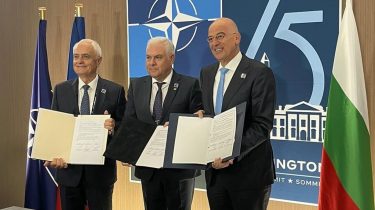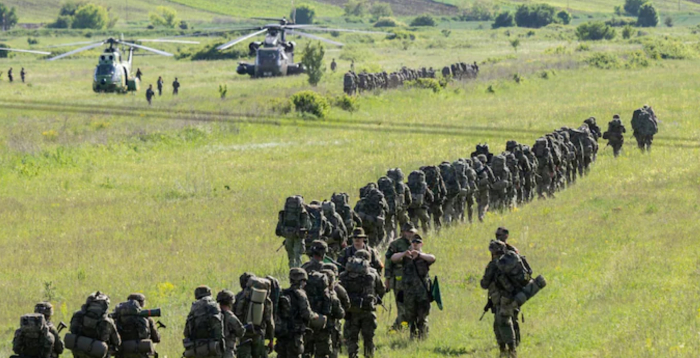Greece, Bulgaria and Romania agreed to create a new military corridor

On Wednesday, July 10, at the NATO summit in Washington, Defense Ministers of Greece Nikos Dendias, Bulgaria Atanas Zapryanov and Romania Angel Tylvar signed a letter of intent to establishing a military corridor on the eastern side of the alliance.
NATO is on the move to developing a military corridor along its eastern flank.: what does this mean for the security of the region?
The agreement will allow military personnel to freely cross border posts while carrying out missions, which will significantly speed up their movement and reduce the time spent on bureaucratic procedures.
“Today at the NATO summit in Washington, I, together with my Bulgarian colleague Atanas Zapryanov and Romanian colleague Angel Tylvar, signed a letter of intent to create a Harmonized Military Mobility Corridor,” Dendias said on his social network page.
He also noted that, on his initiative, a trilateral meeting with the participation of these countries will be held in the fall in Alexandroupolis (Greece) to discuss practical steps to implement the agreements.

A key reason for military cooperation between the countries is the need to ensure rapid response and mobilization of reinforcements in the event of a threat to the security of any of the three countries.
According to the Greek newspaper Καθημερινή, the planned corridor will connect the Greek cities of Thessaloniki and Alexandroupolis with the Bulgarian Varna and Romanian Constanta. These cities are of strategic importance to NATO due to their close proximity to the eastern borders of the alliance.
“Each of these countries has seaports, railway and road infrastructure, which significantly contributes to the stability and rapid mobilization of allied forces on NATO’s eastern flank,” one of the publication’s sources emphasized.
Ukraine and NATO: support on the path to membership and global security
Earlier in the day, it became known from the published NATO declaration that the alliance will continue to be engaged in activities within the Black Sea region and the Western Balkans.
The document also notes growing cooperation with countries in the Indo-Pacific region. In addition, from the contents of the declaration published on July 10, it follows that NATO countries plan to continue to support Ukraine in its quest for membership in the alliance. These steps demonstrate the strategic significance of guaranteeing stability and safety not only on NATO’s eastern borders, but also in other regions where the alliance is actively strengthening its presence and cooperation.

These initiatives reflect not only a desire to bolster the defense capabilities of the alliance, but also its readiness to effectively respond to the challenges of modern security on a global scale.
